PAMAfrica/SINDOFO capacity building symposium at MIM 2024
Transformative partnerships: investing and innovating in local and gender-balanced leadership for the next generation of African leaders in Malaria R&D
Location: Kigali Convention Centre, Room AD12
Date & time: Friday, 26 April from 10:30 to 12:00 (GMT +2)
Speakers

Alice Neequaye, Associate Director Quality, Medicines for Malaria Venture (Switzerland): Equitable partnerships as a tool for improved malaria control and elimination.
With a master’s degree in Chemical and Biological Chemistry from the Swiss National Institute of Technology and a rich background spanning 16 years in the pharmaceutical industry, Alice Neequaye oversees all aspects of quality for MMV and is a steadfast advocate for amplifying the voices of underserved populations. Under Alice’s leadership, MMV’s Equitable Partnership platform has become a cornerstone of the organization’s strategic 2024-2030 vision. This initiative reflects Alice’s unwavering commitment to fostering stronger, healthier and enduring collaborations.
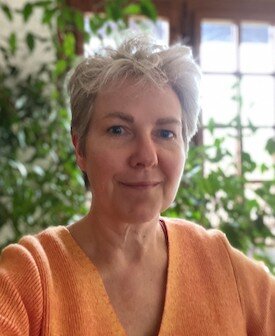
Dr Helen Demarest, Director Clinical Operations, Medicines for Malaria Venture (Switzerland): Partnering to enable higher education and further research skills at the grassroots level.
With over 20 years of experience in clinical research operations, Dr Helen Demarest’s career has taken her from practical work with clinical trial sites in training, oversight and monitoring, to directing Clinical Operations groups for malaria trials covering all phases of research, from first-in-human to post-approval feasibility studies. This experience has given her particular insight into the perspectives of all clinical trial stakeholders, from the sponsor organization and research scientists to physicians and implementers in the field, which facilitates an equitable approach to multi-stakeholder clinical research practices.
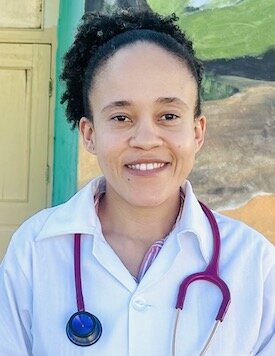
Dr Jessica Dalsuco, Research Physician, CISM (Mozambique): Including women in the global agenda, career progression in clinical research and addressing gender and opportunity challenges through advanced degree and practical training to enrich the African clinical trial ecosystem.
Dr Jéssica Dalsuco is a Biomedical Researcher at the Manhiça Health Research Centre (Mozambique), supporting the clinical area as a physician in the Neonatology and Paediatrics Emergency Department. She has a degree in General Medicine from the Higher Institute of Science and Technology of Mozambique, a post-graduate degree in Neonatal Medicine from the Portuguese Catholic University and a master's degree in Cardiovascular Physiopathology from the University of Porto. Dr Dalsuco is currently pursuing her PhD in Medicine and Translational Research at the Barcelona Institute for Global Health.
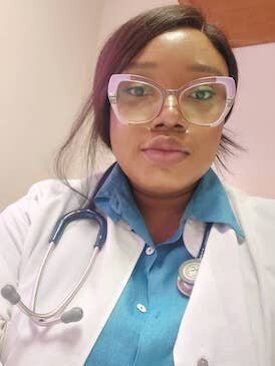
Dr Dearie Glory Okwu, Research Physician, CERMEL (Gabon): Including women in the global agenda, career progression in clinical research and addressing gender and opportunity challenges through advanced degree and practical training to enrich the African clinical trial ecosystem.
Dr Dearie Glory Okwu is a Research Physician and Clinical Investigator at CERMEL. With over three years of experience conducting clinical trials, she is committed to researching the development of medicines for Poverty-Related Diseases, specifically focused on Infectious and Neglected Tropical Diseases. Dr Okwu graduated from Igbinedion University Okada, Nigeria in 2009 with a Bachelor’s in Microbiology and graduated with honours from Medical University, Pleven, Bulgaria with Master’s in Medicine and Surgery in 2018.
Chairs
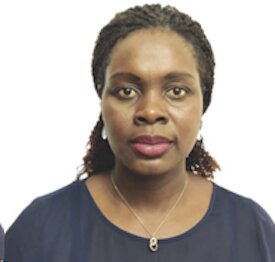
Teresa Machai Macete, Head of the Research Training Unit at Manhiça Health Research Center (Mozambique)
Teresa Machai has more than 15 years of experience in management and leadership programmes, and is currently the Research Training Manager at the Manhiça Health Research Centre (CISM, Mozambique), Project Manager for the Trials of Excellence in Southern Africa (TESA), and Capacity Building Training Coordinator for the PAMAfrica Consortium.
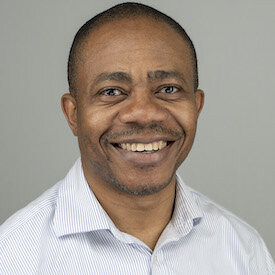
Dr Joseph Okebe, Clinical Lead Global Health, Merck Group (Switzerland):
With over 10 years of experience leading research on medicines and public health interventions to reduce disease burden in low and middle-income countries, Dr Joseph Okebe is an expert in developing and implementing complex clinical studies, including clinical trials undertaken in multicultural, interdisciplinary research environments.
Symposium abstract
Publicly funded consortia involving diverse stakeholders from academia, global health organizations, pharmaceutical companies and African research institutions are key to driving the necessary paradigm shift to a truly sustainable African clinical trial ecosystem and offer an unprecedented space for direct dialogue and collaboration.
In the last two decades, major investments have been made to develop human capacity and infrastructure in sub-Saharan African research. However, independent research centres with a multi-disciplinary focus supporting malaria research, career development and equitable talent retention continue to face challenges.
To address this, a shift in the paradigm of collaboration that fosters equitable partnerships and builds on existing local and grassroots leadership capacities can facilitate new opportunities to end malaria. This requires innovative approaches that go beyond the perspective of a single project. Best research practices and new ways of working must involve women and local communities at every stage of development – including fundamental decision-making processes – to ensure the gender balance, cultural appropriateness and social responsibility of research programmes.
Softer skills support high-caliber science and innovation to end malaria and enhance opportunities for equitable scientific leadership from the grassroots to achieve real global influence. Such skills help secure funding through successful grant proposals, enhance leadership and management practices, and promote recognition and exposure through scientific writing and communication directed at a variety of audiences. As such, partnering with early career malaria researchers to specifically develop these skills to complement academic training can facilitate success.
Hosted jointly by the PAMAfrica and SINDOFO consortia, the objective of this symposium is to examine and discuss how equitable partnerships can support the malaria elimination agenda and how these partnerships enable higher education and further research skills at the field level, using the real-world experiences of two young African female researchers. Following the presentations, the symposium speakers will be joined by panelists to engage in a discussion and take questions from audience members.